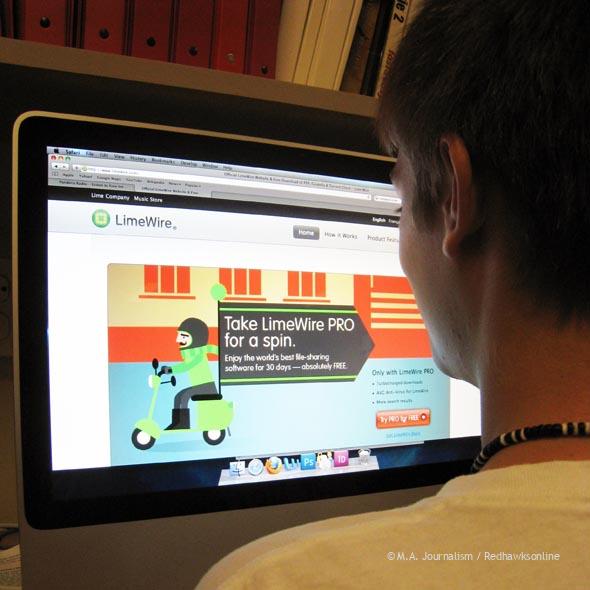Free music is popular, but is it legal? And what are the real costs?
by Jeffrey Riley Talon Staff WriterThe internet has innumerable uses and functions that can make everyday life easier. From social networking to school work, general browsing to searching for answers, the web is a priceless tool.
One of the more common uses for the internet though is downloading music. Legally or illegally, people of all ages realize that getting the music online is simple, quick and easy. The problem arises when illegally downloading music is equally easy, if not more so.
“I don’t have the money to support my passion for music,” said Minnehaha Academy junior boy. “Downloading it for free is the only way to me.”
Free music appears to be a great deal and downloading it is as easy as a few clicks, but do the potential ramifications outweigh the temporary satisfaction of knowing you didn’t have to pay for your favorite song?
According to the Recording Industry Association of America, penalties for illegal downloading are steep. You may have seen in the beginning parts of a VHS movie, the FBI warning that if one copies the product, they are subject to a fine of $250,000 or five years in jail, or both. This principle applies to music as well. The civil penalty could be as much as $750 per song downloaded.
In a society where virtually everyone has access to the internet, and innumerable people are engaging in music piracy on a daily basis, it seems almost impossible that anyone person could be caught in the crosshairs of the law.
The RIAA in fact filed thousands of lawsuits against individuals in order to raise awareness and put an end, or at least slow down the unceasing piracy problem from 2004-2008. Although there is not another mass individual lawsuit in sight, it’s possible that, if piracy increases, it may happen again.
Until then, the RIAA is focusing on the broader problem by going to the source. Larger organizations such as BitTorrent and Limewire will be held responsible for encouraging and facilitating in the piracy business.
According to the Institute for Policy Innovation, piracy causes a staggering $12.5 billion in losses every year. Not only does the band, whose music is copyrighted, lose money, but a domino effect takes place. If the band is losing money, then so is the crew that works for them, and therefore aren’t able to produce as much.
While music piracy is illegal, there are bands out there that realize it’s the only way their audience will listen to their work. At a recent show at Station 4 in downtown St. Paul, Minnesota, several artists and bands said on stage “If you don’t buy our CDs, at least download them” with an implication that they would be downloaded illegally.
The exponentially growing music piracy business is taking its toll on the whole industry. From bands to record labels, illegally obtaining music is fast, easy, yet detrimental to the business. If the trend continues, bands won’t be able to produce nearly as much as even now, and soon there won’t even be any music to steal. If you wouldn’t shoplift, you shouldn’t engage in music piracy, for the fines can be much steeper.

